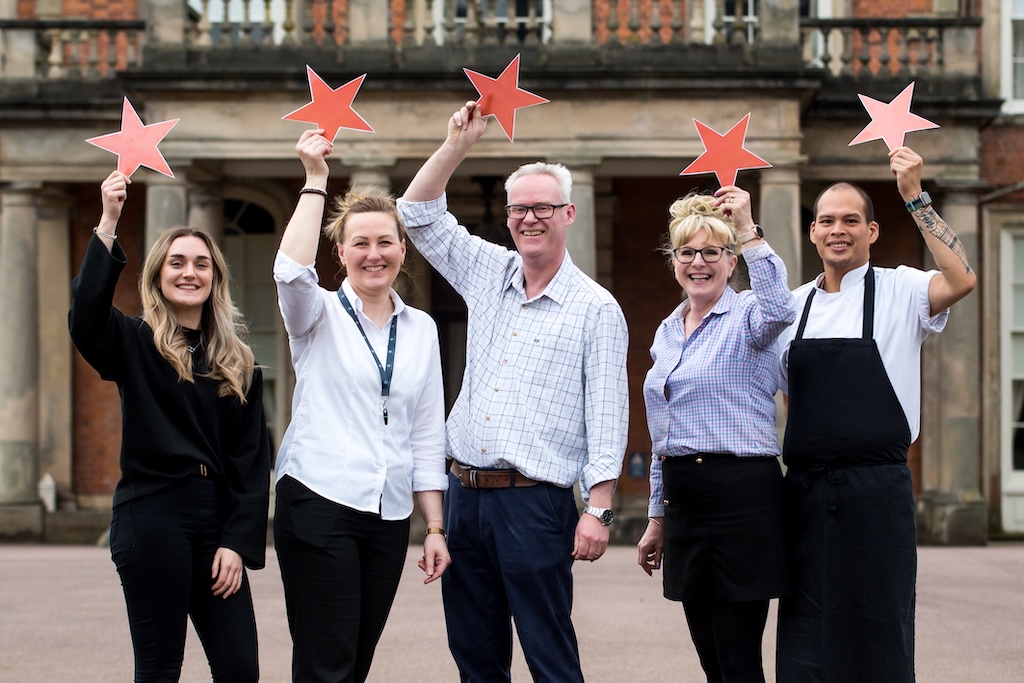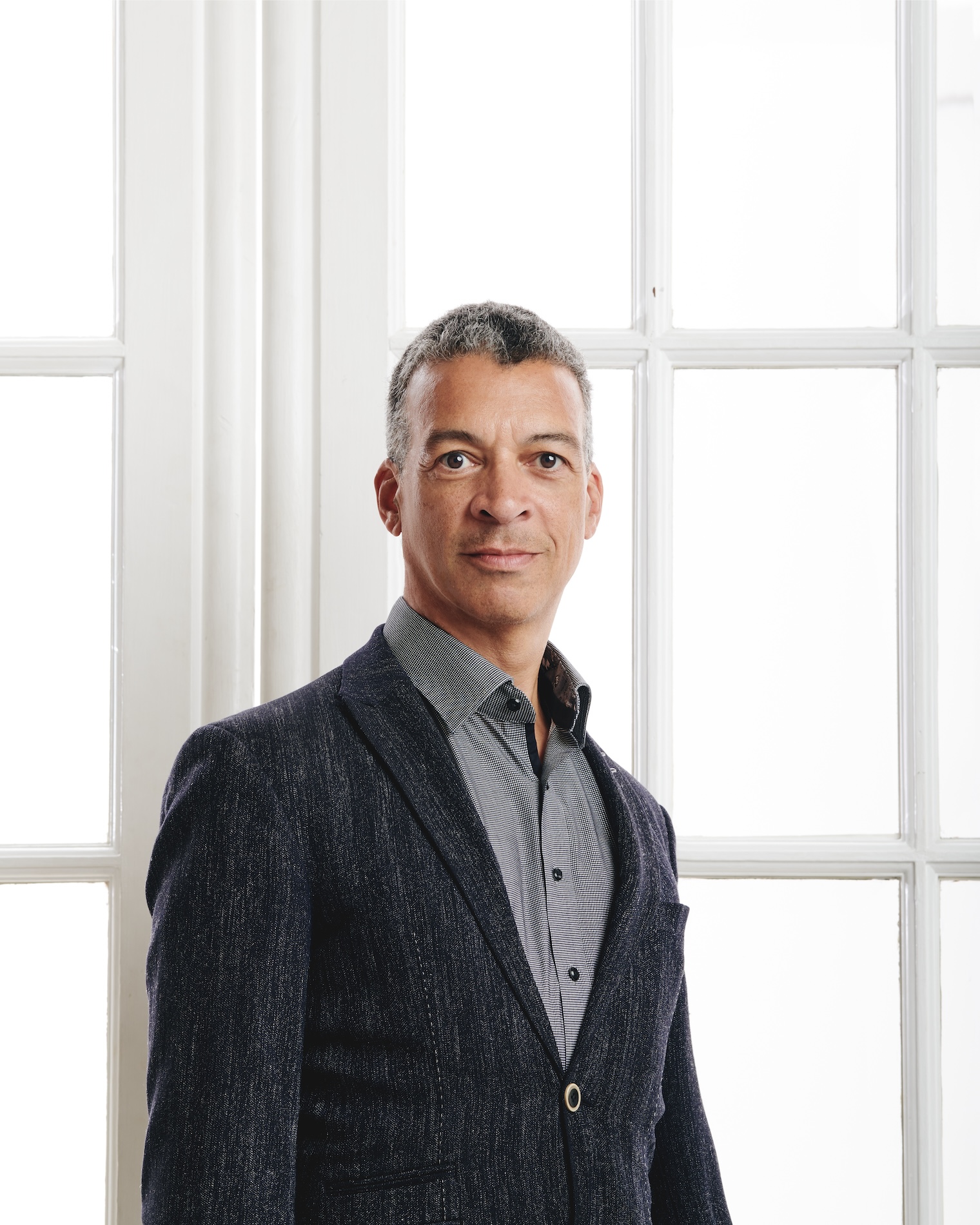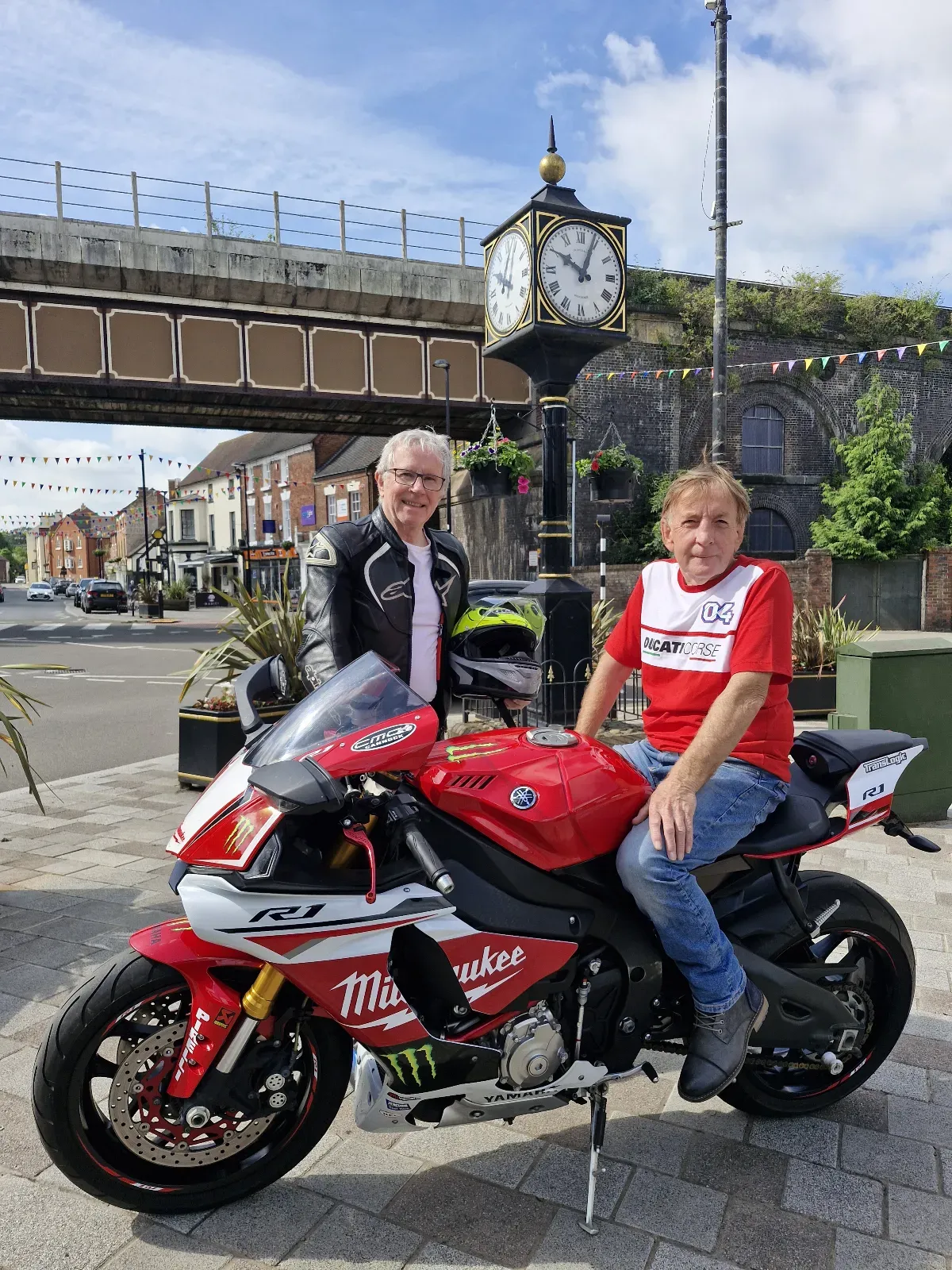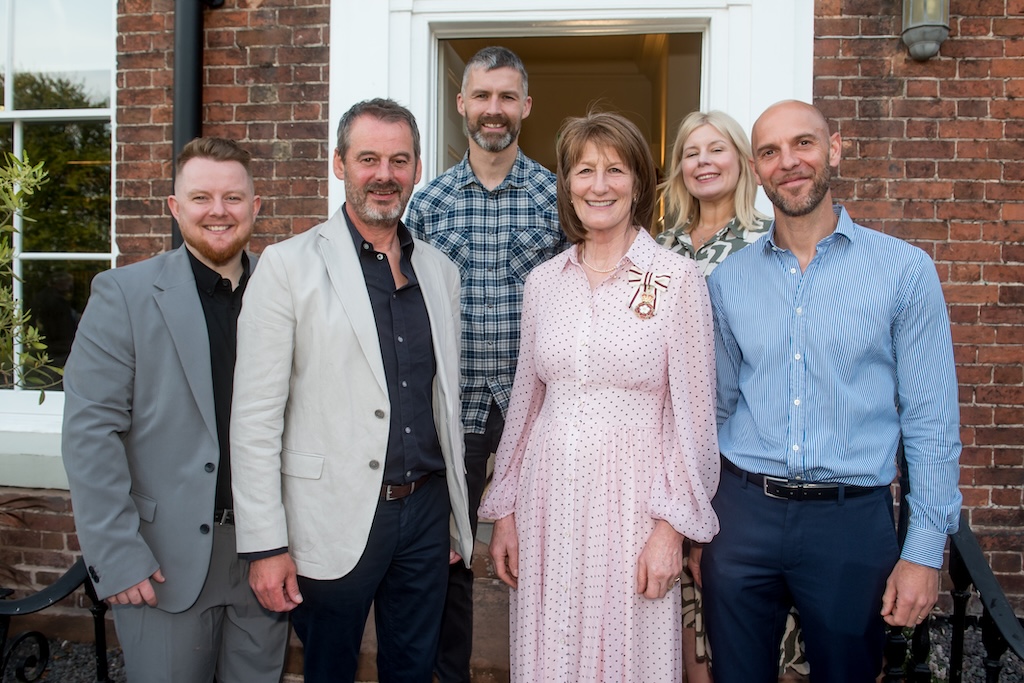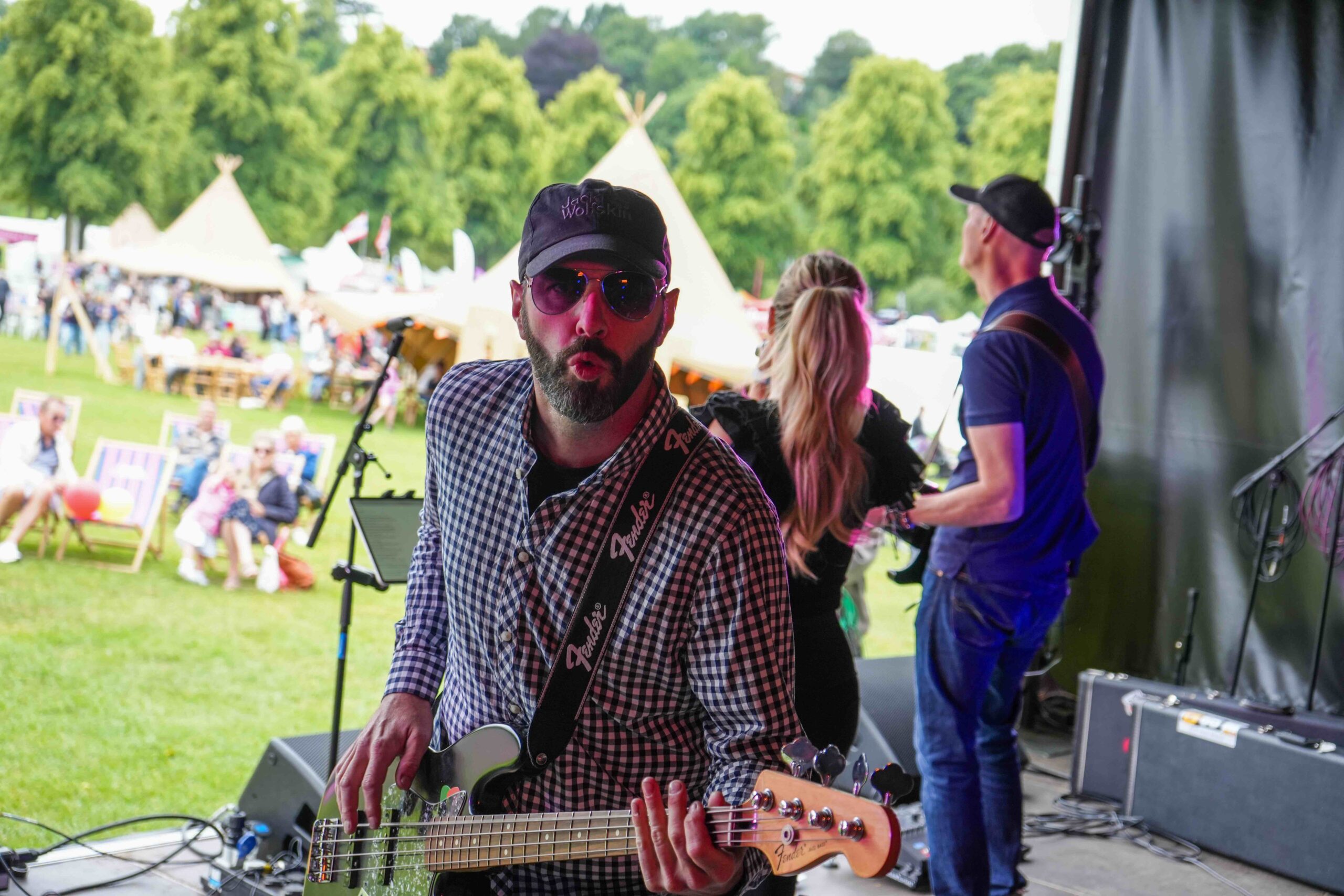Neil Thomas speaks to a Bridgnorth nurse who has been recognised for more than 40 years’ service in the NHS.
Nurses have been in the news every day for the past 15 months. How could it be otherwise in a pandemic?
They have always been held in deep affection by the British public but never more so than now. So, it is entirely in keeping that Bridgnorth should honour one of its own.
Hazel Gregory has been recognised with a Mayor’s Award for 2020/21 for her 42 years’ service in the NHS. She has spent 36 years working at Bridgnorth Community Hospital, where she is team leader in the Minor Injuries Unit.
“I was very surprised but absolutely delighted,” says Hazel, after receiving her award from mayor Kirstie Hurst-Knight.
Kirstie says that Hazel’s years of selfless dedication to the Bridgnorth community were worthy of recognition.
“It was personally very special for me to do this presentation as Hazel has looked after my family.”
For her part, Hazel was keen to share the credit. “The award might be to me but it’s a reflection of the work of the whole team. They are very special and have made this possible for me,” she says.
There are 13 in that team, covering minor injuries and outpatient services from 8am to 9.30pm, seven days a week. It means lengthy shifts, reflecting the fact that stamina is one of the many skills required of the modern nurse. Not that staying power is a problem for Hazel, who began her career in 1979 and is still going strong.
The top selling record of the year was Bright Eyes by Art Garfunkel and the highest-grossing movie Kramer versus Kramer, with Dustin Hoffman and Meryl Streep. It was also the year that Margaret Thatcher made history by becoming the UK’s first woman prime minister, a ground-breaking news event whose rarity served only to highlight the limited career horizons facing young women at the time.
“When I was at school, as a girl you thought you’d become a nurse, a secretary, a hairdresser or a teacher. Those seemed to be the choices back then. Unlike today, becoming an engineer or mechanic wasn’t in your thought patterns,” recalls Hazel, who is Bridgnorth born and bred and went to St John’s Catholic and Oldbury Wells schools.
Attracted by the caring nature of nursing and the chance to help others, she enrolled to train at the Royal Shrewsbury Hospital.
She moved into student nurses’ accommodation in the town for the two-year course. “Students often live at home and travel in to hospital these days but I enjoyed the experience of living on site with other trainees. I made lifelong friends.”
Hazel has witnessed significant changes in nursing over the past four decades. The job now carries far more responsibility than back in the late 1970s. At hospital or the local medical practice, the first person the patient invariably chats to about their symptoms is a nurse.
“When I started, we were basically there to do what the doctor said. Now nurses are a lot more autonomous. You question the patient about symptoms and make your own decisions. Blood tests and other health checks are routinely carried out by nurses now. There is a lot more personal responsibility.”
With that, of course, comes the need for deeper knowledge. Training throughout a nursing career is designed to meet these increasing challenges.
“There are enrolled nursing qualifications, general nursing and then degrees,” Hazel explains. “Nurses are very well qualified.
It is a far cry from the 1960s ‘Carry on Matron’ image of nurses whose role seemed predominantly to empty bedpans and keep patients’ morale up.
The latter, of course, is still a key ingredient and nurses are so often the smiling, caring face of the NHS. But much else has changed.
“We no longer have to sterilise our equipment, as we did back then, because a lot of what we use is disposable,” Hazel explains. “I remember when you had to scrub the bedpans, now they are just thrown away after single use.
“The uniform has changed for the better. We used to wear dresses with caps, which was pretty impractical. Now we wear trousers which are much more comfortable.”
A rise in anti-social behaviour is a curse of the modern age and A&E and minor injuries units are, unfortunately, not exempt. Doctors and nurses occasionally find themselves having to deal with awkward and aggressive patients, with drink or drugs a common factor.
“We are very fortunate in Bridgnorth that this isn’t a problem. People tend to be polite and considerate here. It helps that it’s a small town and you know a lot of the people who come into the hospital, particularly in my case after 36 years. Obviously patient confidentiality is all important though, so what happens in the hospital stays in the hospital.”
Even amongst the polite majority, though, Hazel has observed a cultural change in the doctor/patient relationship.
“There was a time when the doctor would tell the patient to jump and the patient would reply ‘how high?’. Now, patients are a lot better informed and ask a lot more questions of the doctor, which is a good thing. The internet has played a big part in that, there is access to so much free information and patients have often researched their symptoms before they arrive.”
While most change in nursing over the past 40 years has been gradual, the most significant was rapid and forced upon the profession by a world health crisis that has affected us all.
The Coronavirus pandemic has transformed the NHS and wider society, with the need for PPE (personal protective equipment) in hospitals and other medical settings, the routine wearing of face masks by the public, Covid testing and the monumental rollout of vaccines, developed in record time by the world’s leading scientists and carried out by the health service with an army of volunteers.
“The last 12 months have seen many changes that none of us could have been prepared for,” Hazel says. “As a team we have worked through one of the biggest challenges ever, keeping our services running smoothly whilst ensuring everyone is safe, protected and receives our usual high standards of care.
“I am very fortunate to work in an amazing team who all go above and beyond.”
Hazel’s is married to self-employed builder David and her 42-year service with the NHS has only been interrupted twice, when she had their sons, Ian and Simon. Both brothers are sports enthusiasts, well-known in Bridgnorth for football and particularly cricket. They have gone on to incorporate sport into their careers, for Ian is an area manager with cricket charity Chance to Shine and Simon a PE teacher in Edgbaston, Birmingham. Both are cricket coaches.
Ian is married to Melanie, who is also a PE teacher, and they have a son Joseph, who is nearly two. Like Hazel, Simon’s girlfriend Jemma works in the health profession, as a physician’s associate.
It is obvious to hear Hazel talk that she is immensely proud of her family. I’ve never spoken to them, but I wouldn’t mind betting that they are pretty proud of her too.
It is often said that nursing is a vocation. Hazel Gregory has certainly found her calling and devoted much of her life to it. And the good news for Bridgnorth is that she has no plans to retire just yet.
“I’m not giving up for a while,” she says with a smile.


